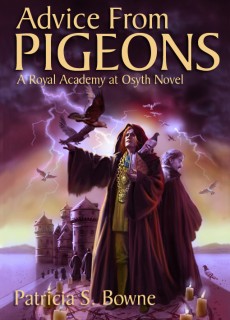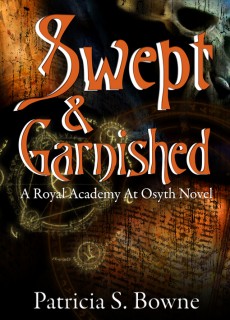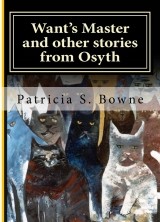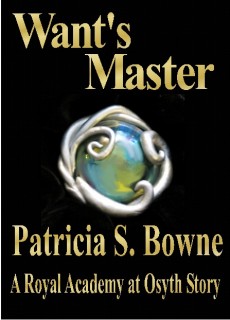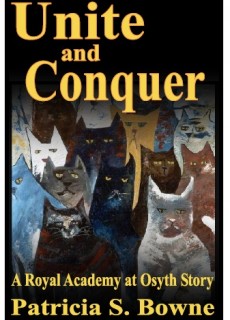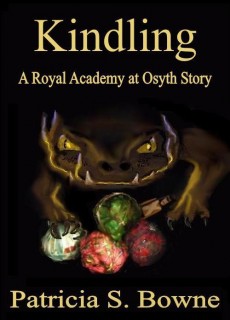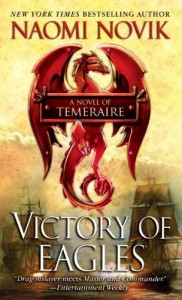 The Temeraire series is the most intelligent set of books about dragons I’ve ever read, and all of its best features are back in the latest installment, ‘Victory of Eagles’.
The Temeraire series is the most intelligent set of books about dragons I’ve ever read, and all of its best features are back in the latest installment, ‘Victory of Eagles’.
It’s apparently been out for a year, but I hadn’t noticed until the Borders going-out-of-business sale: partly because I can’t keep the titles of the series straight in my mind and so never know which ones I’ve already read, and partly because the last volume had left a bad taste in my mouth. But I was very glad I picked this one up.
This volume finds Temeraire and Lawrence back in England, doing the kinds of courageous and well-reasoned things I like so much, and that so distinguish these books from the usual run of talking-dragons novels.
To begin with, the characters in these books wrestle with their moral decisions far more strenuously than the characters in other dragon books, who usually seem to ‘know in their guts’ what’s the right thing to do. Lawrence, especially, strives mightily to put his feelings aside. Temeraire more often plays the questioning, critical role — usually voicing questions the modern reader would ask, but sometimes coming out of his very own left field. I especially liked his pointing out that, having committed treason by helping the French in the previous book, Lawrence should have at least taken their offered reward and reduced the amount of money they could devote to conquering England. It’s obvious to any of us why taking payment would have been horrid, yet Temeraire’s analysis is more logical than Lawrence’s. And it’s a relief when Temeraire finally takes charge of Lawrence’s well-being and puts an end to his over-noble attempts to get himself hanged for treason.
But Lawrence’s angst is reasonable, because he did in fact commit treason, and neither he nor the reader can be sure it was the right thing to do as Napoleon invades England with the dragons who would otherwise have been dying. This is one of the outstanding strengths of this series; rather than being used as stock villains or idiots, the antagonists are as intelligent as the heroes and often better informed. We sympathize with Temeraire, who often dismisses the officers who disagree with him as stupid, but we can see how a dragon who won’t follow orders is more trouble than he’s worth to the military. And in the final battle, Temeraire in fact doesn’t understand what is planned, and has to obey the generals who know more than he does.
That’s what really makes this series stand out from the crowd. Ms. Novik doesn’t feel the need to tilt the board in favor of her protagonists, either by making the antagonists stupid and venal or by giving the protagonists an unrealistic entree into high command. Perhaps the reason I didn’t like the previous volume was because in that one the English high command did seem stupid and venal, doing something that seemed better suited to stock villains than to worthy antagonists; but in this novel, where she shows the consequences of Lawrence’s interference, the series’ strengths are all in full display, reminding us on every page that this is really a dragon series for grown-ups.

